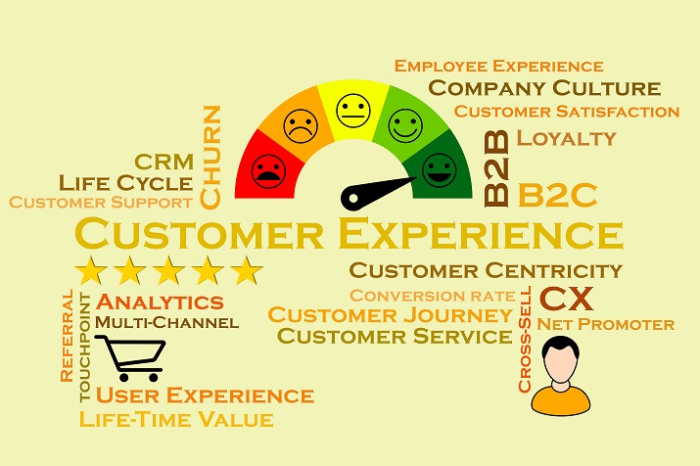
 Data Structure
Data Structure Networking
Networking RDBMS
RDBMS Operating System
Operating System Java
Java MS Excel
MS Excel iOS
iOS HTML
HTML CSS
CSS Android
Android Python
Python C Programming
C Programming C++
C++ C#
C# MongoDB
MongoDB MySQL
MySQL Javascript
Javascript PHP
PHP
- Selected Reading
- UPSC IAS Exams Notes
- Developer's Best Practices
- Questions and Answers
- Effective Resume Writing
- HR Interview Questions
- Computer Glossary
- Who is Who
What do you mean by Value Centric Selling?
The goal of value-centric selling is to keep the consumer in mind at every stage of the sales process. Sales decisions are centered on the potential value a product might offer since salespeople prioritize a proactive approach to delivering value to clients. The objective of a value-based selling strategy is to prioritize the needs of the client, assist them in the sales process, and help them make decisions that best fit those needs (ideally, when it comes to acquiring things). This fosters in the customer an anticipation of successful consequences the product will bring about.
Importance of Value Centric Selling
The way we shop has evolved in the information era. They now shop differently. With access to so much information, customers demand more from their sales representatives than simple pitches. Instead, purchasers demand and anticipate that suppliers prove the value they offer. Salespeople must adapt to the contemporary market and concentrate on value in order to stay competitive.

Numerous prospective clients are frequently barraged with messages urging them to make a purchase. These do this by setting themselves apart from their rivals and offering greater value than anybody else, which results in long-term delighted clients.
Selling on value, not price, is crucial when it drills down to closing B2B deals. According to sales guru Brian Tracy, in order to boost sales, salespeople must convince potential buyers that the things they are offering are worth much more than the asking price. I was.
Value selling involves determining the customer's needs, justifying the high price of the product, and demonstrating how the good or service will improve the customer's life. It is important to remember that without you, the company's ideals and services simply cannot be met.
Key Factors of Value Centric Selling
The key factors of value centric selling are as follows ?
Do your research well ? Any worthwhile transaction should be closed by prioritizing the needs of the prospect. However, if you don't understand your prospect's demands, you can't prioritise meeting those wants. Always conduct good research to determine who to contact before making a sales call.
Refrain from diving too deeply into the pitch ? When you get a phone lead, resist the urge to start the pitch right away. Even though your survey may have taught you a lot about your prospects, nothing compares to hearing from them directly.
Explain how your offering gives your consumers more value ? Your prospect isn't looking for a new product if they don't have an issue that you're trying to fix for them or one that they have themselves. Although it might seem apparent, you must explain to your clients why your product is the answer to their problems if you want them to buy it. Must be able to comprehend and effectively explain.
Emphasize teaching rather than selling ? Educating your prospects and customers on subjects that interest them is one of the best ways to give value to them. By prioritizing education, you establish yourself as a go-to source for knowledge that promotes trust. Your proposal will be far more alluring once trust has been developed and prospects are prepared to buy since you have previously proven value rather than forcing a sale on the customer without a demonstration of value.
Direct customers through the purchasing procedure ? If you adopt a value-based strategy, your job as a salesperson will be to serve as a counselor and assist potential customers in making wise buying decisions. Avoid the urge to direct your prospects' actions by instead providing them with innovative ideas and tactics that will help them strengthen their position in the market.
Make every interaction more valuable ? Every time you interact with your prospects, add value to continue developing trust and fostering lifelong pleasant experiences. Every time they connect with you, you desire that they feel, understand, and be encouraged.
Examples of Value-Centric Companies
Nowadays, buyers have the greatest degree of control over the purchasing process. They have more options than ever before, greater power, and a propensity to do more study before making purchases. Instead of adopting a product-centric approach, many businesses prefer to embrace a customer-centric approach. Some take it a step further and apply a value-based strategy. Paul Polman, CEO of Unilever Global, reaffirmed this when he said ? "Making more money or growing bigger implies earning less and less." Successful brands will have a purpose and values that have been developed over time. This way of thinking is shared by HBR, which claims that a value-based strategy boosts internal collaboration, accelerates learning, and improves financial performance.
With a values-based strategy, the business makes use of steadfast ideals and ideas that motivate our actions. You market value by narrating and illustrating grand narratives that convey consumer ethics and ideals. The item itself is incidental.
Patagonia
One of the most reliable and effective vendors is Patagonia. Being open with its stakeholders and protecting the environment are key components of its worth. Patagonia creates material that reflects the values of its audience and puts that content into practice. Although Patagonia's products are technically and functionally superior, their customers value their honesty, dependability, and commitment to social and environmental reforms for a better world. As a result, their clients continue to use them.
Not outerwear, but responsible sourcing is what Patagonia sells. They promote the chance to take part in reducing the negative effects on the environment.

Method
This soap manufacturer understood there was an unmet market need. As a fundamental differentiation from its rivals, Method combines exquisite design with corporate social responsibility. The method encourages purchases, launches sustainability programs, and fosters consumer loyalty through its design and fragrance.
Not cleaning supplies, but environmental consciousness is what Method sells. They market home goods that express people's beliefs.
Conclusion
Value-centric selling is a wholly customer-centric strategy that gives consumers the chance to actively contribute to the creation of solutions while delivering focused products with obvious value.
However, it also depends on company culture, business ethics, and customer connections. If value selling is done correctly, it can significantly alter the course of your company and help you unearth untapped growth possibilities.

